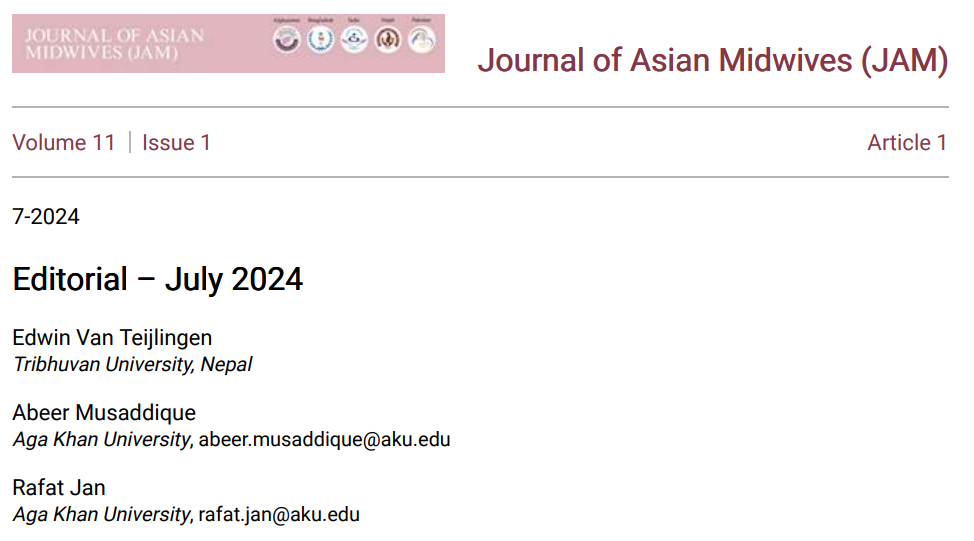 The latest issue of the Journal of Asian Midwives was published last week. In the accompanying editorial we focused on the environment and sustainability in midwifery and maternity care.
The latest issue of the Journal of Asian Midwives was published last week. In the accompanying editorial we focused on the environment and sustainability in midwifery and maternity care.
Climate disasters appear to be on the rise worldwide, owing mostly to global warming, but also to urbanization and other human factors. Some Asian countries are among the world’s most climate-vulnerable, such as Nepal ranking 139th out of 182 in terms of exposure, sensitivity, and ability to adapt to the negative effects of climate change. Nepal, well-known for its mountains, the Himalayans, and especially, Mount Everest, is grappling with not solely earthquakes, but also floods, landslides, wildfires, and droughts. In the past decades we have also seen major natural disasters in many other South Asian countries, such as cyclones in Bangladesh, earthquakes and flooding in Pakistan, tsunami and drought in India, and so on.
Marginalized populations, suffer already from poverty, food insecurity, and discrimination, and agriculture-based livelihoods, are especially susceptible to environmental effects. These calamities frequently adversely impact low-income populations. We must not forget that when a disaster strikes, regardless of climate change, the impacted areas will require emergency rescue teams, temporary shelters, food and medication, and other necessities, as well as infrastructure support to keep non-emergency services functional. Remember that even after an earthquake, flood, or volcano eruption, there will still be a mother going into labour!
The Journal of Asian Midwives is Open Access and hence freely available to everybody with internet access in Asia (and elsewhere in the world).
Prof. Edwin van Teijlingen
Joint editor Journal of Asian Midwives

Reference:
- van Teijlingen, E., Musaddique, A, & Jan, R. (2024) Editorial – July 2024. Journal of Asian Midwives, 11(1): 1–2.
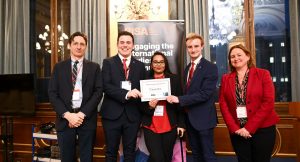 BU students in the Humanities and Law Department, Shahidah Miah (3rd year Law student), Alex Carey (2nd year History student) and Josh Pitt (3rd year Politics student) won the Distinguished Delegation Award at the BISA Model NATO. The event took place at the Foreign Commonwealth and Development Office on Friday, March 3rd, and was organized by the
BU students in the Humanities and Law Department, Shahidah Miah (3rd year Law student), Alex Carey (2nd year History student) and Josh Pitt (3rd year Politics student) won the Distinguished Delegation Award at the BISA Model NATO. The event took place at the Foreign Commonwealth and Development Office on Friday, March 3rd, and was organized by the 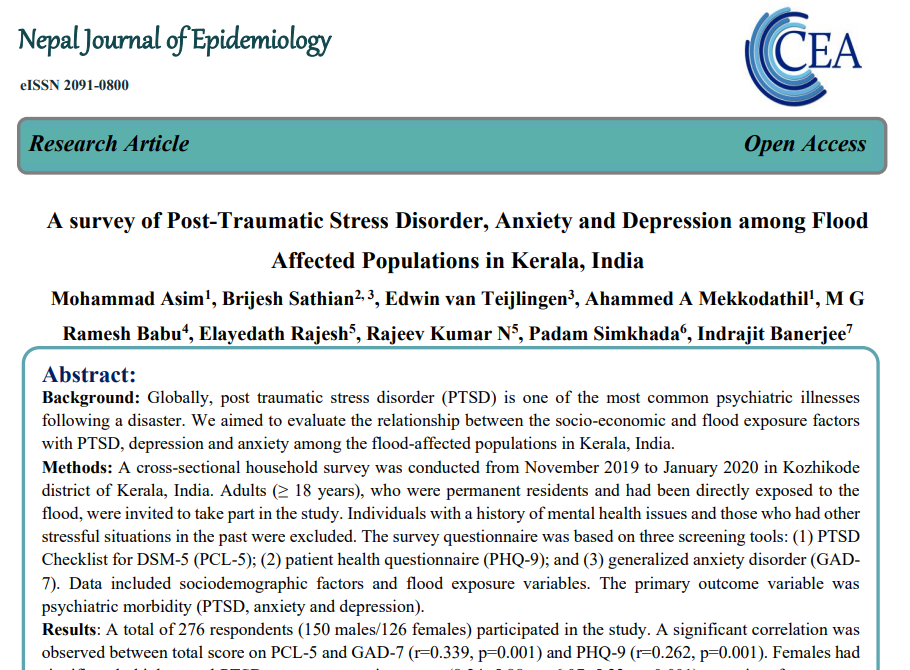

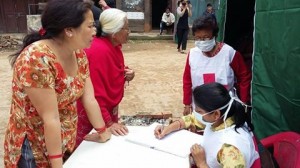
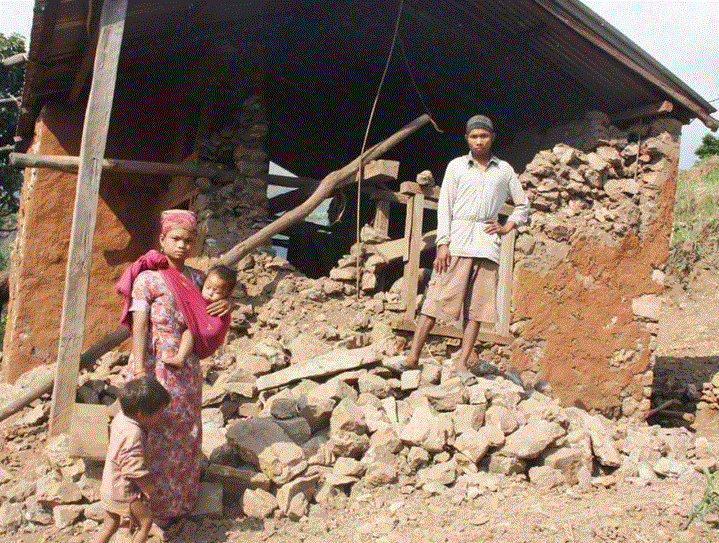
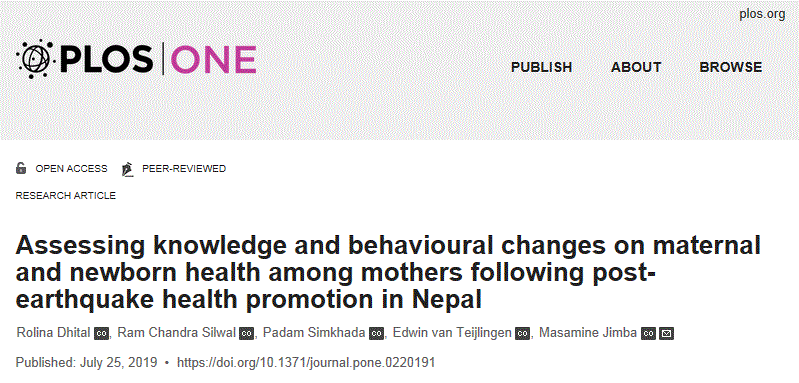
 Yesterday the Nepal Journal of Epidemiology published its latest issue which included the paper on ‘Post-Traumatic Stress Disorder among the Flood Affected Population in Indian Subcontinent’ [1]. This Short Communication is co-authored by Prof. Edwin van Teijlingen and two members of the Visiting Faculty in our Faculty of Health & Social Sciences, namely: Prof. Padam Simkhada and Dr. Brijesh Sathian. The Nepal Journal of Epidemiology is an Open Access journal hence this paper is freely available for anybody with internet access to read.
Yesterday the Nepal Journal of Epidemiology published its latest issue which included the paper on ‘Post-Traumatic Stress Disorder among the Flood Affected Population in Indian Subcontinent’ [1]. This Short Communication is co-authored by Prof. Edwin van Teijlingen and two members of the Visiting Faculty in our Faculty of Health & Social Sciences, namely: Prof. Padam Simkhada and Dr. Brijesh Sathian. The Nepal Journal of Epidemiology is an Open Access journal hence this paper is freely available for anybody with internet access to read.

 NERC, the Department for International Development, and the Economic & Social Research Council
NERC, the Department for International Development, and the Economic & Social Research Council 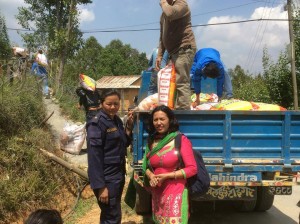
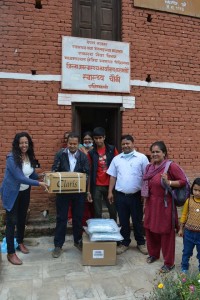
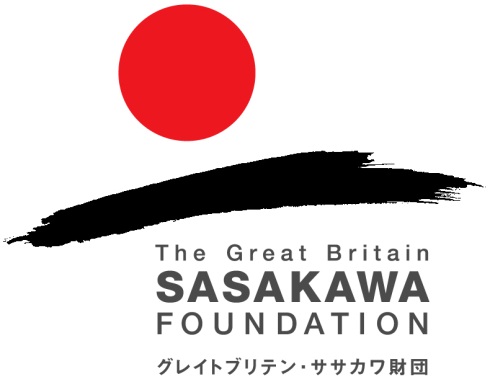 Congratulations to
Congratulations to 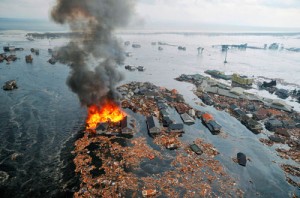 Dr Reddy commented ‘the small grant from the Great Britain Sasakawa Foundation will hugely help me to investigate the Japanese tsunami impacts on tourism and develop local collaboration with researchers in Japan for in-depth research’. Dr Reddy is a member of
Dr Reddy commented ‘the small grant from the Great Britain Sasakawa Foundation will hugely help me to investigate the Japanese tsunami impacts on tourism and develop local collaboration with researchers in Japan for in-depth research’. Dr Reddy is a member of 












 Dr. Ashraf cited on ‘Modest Fashion’ in The Guardian
Dr. Ashraf cited on ‘Modest Fashion’ in The Guardian NIHR-funded research launches website
NIHR-funded research launches website Academics write for newspaper in Nepal
Academics write for newspaper in Nepal New paper published on disability in women & girls
New paper published on disability in women & girls Global Consortium for Public Health Research 2025
Global Consortium for Public Health Research 2025 MSCA Postdoctoral Fellowships 2025 Call
MSCA Postdoctoral Fellowships 2025 Call ERC Advanced Grant 2025 Webinar
ERC Advanced Grant 2025 Webinar Horizon Europe Work Programme 2025 Published
Horizon Europe Work Programme 2025 Published Horizon Europe 2025 Work Programme pre-Published
Horizon Europe 2025 Work Programme pre-Published Update on UKRO services
Update on UKRO services European research project exploring use of ‘virtual twins’ to better manage metabolic associated fatty liver disease
European research project exploring use of ‘virtual twins’ to better manage metabolic associated fatty liver disease